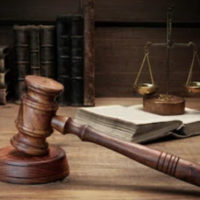The State Must Turn Over Evidence to Accused Defendants

In the movies, trials are often about surprises. One party surprises a witness with unexpected evidence, or shocks the other side with a surprise mystery witness that nobody knew even existed. In fact, in real trials, there should not be any . In criminal cases, an accused can elect to participate in discovery. In almost all cases, discovery is demanded. However, that election is reciprocal. If you ask the state to provide you the witnesses, statements and evidence; the Accused is under the same obligation.
Criminal and Civil Cases
The civil and criminal systems work a bit differently when it comes to discovering what evidence the other side has. In civil cases, the burden is usually on each party to ask for the other side’s evidence (which can include documents, witnesses, or facts known to the other side). If a side doesn’t ask about the other side’s evidence, there is no obligation that the evidence be produced. In other words, parties only need to share information that is requested by the other side. In family law cases however, the law dictates what information must be shared.
Criminal cases are different. In criminal cases, the Brady rule (named after a Supreme Court case of the same name), requires that the State (the prosecution) disclose to the Defendant any and all evidence that the State has which may go to the defendant’s innocence. In other words, the State has a duty to disclose evidence or information that will hurt its own case, if such evidence exists.
For example, assume that the State knew that testing showed that blood at the crime scene did not match the accused’s blood. Even if the accused never asked for that information, or never knew to ask for it, under the Brady rule, the must disclose it.
Brady Violations
A conviction can be overturned if it is revealed that the State is in violation of Brady. To find a Brady violation, the evidence that was not disclosed must have either been exculpatory (in favor of the Defendant’s innocence), or else, must be evidence that could have been used to impeach a State’s witnesses. Evidence that would cast doubt on laboratory testing, or on the credibility or bias of any witness, must also be turned over.
The State must have known of the existence of the evidence, and willfully not turned it over. However, the State cannot remain willfully ignorant. The State has an obligation to know what may be in police files or investigatory documents, and turn Brady information over. It cannot defend a Brady violation by saying evidence was in someone else’s file.
Finally, the Defendant must show that the failure to disclose the evidence impacted the Defendant’s ability to defend the charges against him or her.
Defendant’s Knowledge
Importantly, a Defendant also must not have known about the evidence. A Defendant can’t know that there is evidence or information that would tend to prove innocence, but hide it, hoping to “trap” the State into committing a Brady violation by not turning the evidence over.
You have rights as an accused that must be respected from arrest to trial. Let the Dade City criminal attorneys at the Law Office of Laurie R. Chane help you if you are arrested or charged with any type of crime.
Resource:
oyez.org/cases/1962/490
